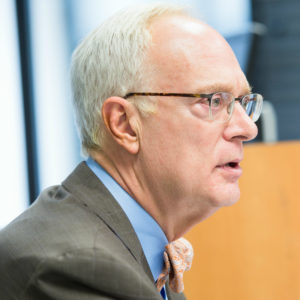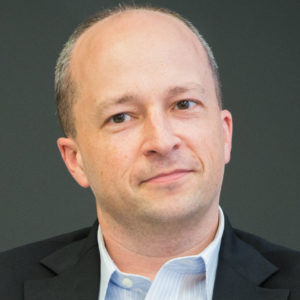American Democratic Capitalism
Explore the intersection of theory and practice in our national politics, and particularly in our key economic debates.
Summer 2013
Washington, DC
Systematic ideas and organized knowledge have come to play a central role in American politics and government. Of course, ideas about good and bad policy have always been part of the competition for public office, but in earlier times ideas were often less important than loyalties—to party, class, and locality and to ethnic, religious, and occupational groups.
Today, ideas have become much more organized, systematic, and influential. Ideologies such as “social conservative” and “progressive liberal” define the attitudes of many citizens toward candidates and officeholders. Academic fields such as economics and psychology supply highly developed frameworks for understanding and debating issues of public policy. Empirical techniques such as statistics and econometrics are used to interpret social and economic problems and to evaluate the results of government programs. Reflecting these developments, academics and intellectuals now figure prominently in politics and government, working out of think tanks, schools of public policy, journals and websites, and policy offices in the White House, Congress, and program agencies.
This course will study the influence of ideas in four areas of policy contention—taxation, regulation, welfare, and abortion. It will also consider the distinctive approach of one important school of political thought—the “neoconservatives” who congregated at the quarterly journal, The Public Interest, beginning in the late 1960s. An initial session will examine the tensions between abstract ideas and the practical requirements of politics and government. Then, turning to our four policy issues, we will read essays by leading neoconservatives—Irving Kristol, Edward C. Banfield, Daniel Patrick Moynihan, and James Q. Wilson—and consider the fate of their ideas in the world of politics and policymaking.
Image courtesy Ronald Reagan Presidential Library
Christopher DeMuth on contemporary policy thinkers

Christopher DeMuth is a Distinguished Fellow at the Hudson Institute in Washington, D.C. He was President of the American Enterprise Institute for Public Policy Research from 1986–2008 and D.C. Searle Senior Fellow at AEI from 2008–2011.

Christopher DeMuth is a Distinguished Fellow at the Hudson Institute in Washington, D.C. He was President of the American Enterprise Institute for Public Policy Research from 1986–2008 and D.C. Searle Senior Fellow at AEI from 2008–2011.
A graduate of The Lawrenceville School, Harvard College, and the University of Chicago Law School, Mr. DeMuth was staff assistant to President Richard Nixon in 1969–1970, working on urban and environmental policy, and, during President Ronald Reagan’s first term, was administrator for information and regulatory affairs in the Office of Management and Budget and executive director of the Presidential Task Force on Regulatory Relief. From 1976–1980, he taught at the Harvard Kennedy School of Government and directed the Harvard Faculty Project on Regulation. He has also practiced law (with Sidley & Austin in Chicago and at the Consolidated Rail Corporation in Philadelphia) and been an economic consultant (with Lexecon, Inc.), and was for a time publisher and editor-in-chief of Regulation magazine (now published by the Cato Institute). He is currently a director of State Farm Mutual Automobile Insurance Company and of several nonprofit organizations.
DeMuth was raised in Kenilworth, Illinois, and lives in McLean, Virginia. He and his wife, Susan DeMuth, MD, have three grown children and seven grandchildren. His writings are posted at www.ccdemuth.com.
Readings:
Discussion Questions:
Readings:
Discussion Questions:
Readings:
Discussion Questions:
Readings:
Discussion Questions:
Readings:
Discussion Questions:

Yuval Levin
Yuval Levin is a Resident Scholar and Director of Social, Cultural, and Constitutional Studies at the American Enterprise Institute and the Editor of National Affairs magazine. Mr. Levin served on the White House domestic policy staff under President George W. Bush.

Matthew Continetti
Matthew Continetti is resident fellow at the American Enterprise Institute, Prior to joining AEI, he was Editor in Chief of the Washington Free Beacon. His articles and reviews have appeared in The New York Times, The Wall Street Journal, and The Washington Post.

Christopher DeMuth
Christopher DeMuth is a Distinguished Fellow at the Hudson Institute in Washington, D.C. He was President of the American Enterprise Institute for Public Policy Research from 1986–2008 and D.C. Searle Senior Fellow at AEI from 2008–2011.

Adam J. White
Adam J. White is a Resident Scholar at the American Enterprise Institute, and an Assistant Professor at George Mason University’s Antonin Scalia Law School, where he also directs the Gray Center for the Study of the Administrative State at George Mason University’s Antonin Scalia Law School.

Daniel DiSalvo
Daniel DiSalvo is a Senior Fellow at the Manhattan Institute’s Center for State and Local Leadership and an Assistant Professor of Political Science at The City College of New York-CUNY. His scholarship focuses on American political parties, elections, labor unions, state government, and public policy.